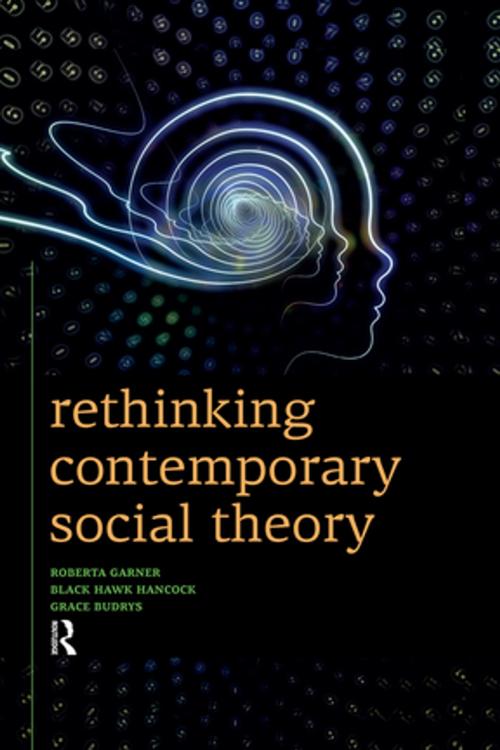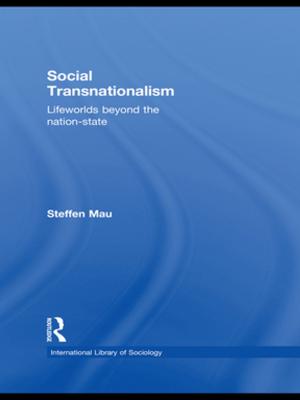Rethinking Contemporary Social Theory
Nonfiction, Social & Cultural Studies, Social Science, Sociology| Author: | Roberta Garner, Black Hawk Hancock, Grace Budrys | ISBN: | 9781317252832 |
| Publisher: | Taylor and Francis | Publication: | September 19, 2017 |
| Imprint: | Routledge | Language: | English |
| Author: | Roberta Garner, Black Hawk Hancock, Grace Budrys |
| ISBN: | 9781317252832 |
| Publisher: | Taylor and Francis |
| Publication: | September 19, 2017 |
| Imprint: | Routledge |
| Language: | English |
The authors recontextualize contemporary sociological theory to argue that in recent decades sociology has been deeply permeated by a new paradigm, conflict constructionism. Their analysis integrates and sheds new light on eight prominent domains of recent social thought: the micro-level; discourses, framing, and renewed interest in signs and language; the construction of difference and dominance; regulation and punishment; cultural complexity and transculturation; the body; new approaches to the role of the state; and a consistent conflict perspective.
The paradigm combines elements of both social construction theory and conflict theory. It has deep roots in critical theory and more recent links to postmodernism. It is associated with postmodern social thought, although it is less radical and more adaptable to empirical inquiry than postmodernism. The authors tie their new conceptualization of social theory to contemporary applications of social theory in everyday life.
Features of this text:
The authors recontextualize contemporary sociological theory to argue that in recent decades sociology has been deeply permeated by a new paradigm, conflict constructionism. Their analysis integrates and sheds new light on eight prominent domains of recent social thought: the micro-level; discourses, framing, and renewed interest in signs and language; the construction of difference and dominance; regulation and punishment; cultural complexity and transculturation; the body; new approaches to the role of the state; and a consistent conflict perspective.
The paradigm combines elements of both social construction theory and conflict theory. It has deep roots in critical theory and more recent links to postmodernism. It is associated with postmodern social thought, although it is less radical and more adaptable to empirical inquiry than postmodernism. The authors tie their new conceptualization of social theory to contemporary applications of social theory in everyday life.
Features of this text:















